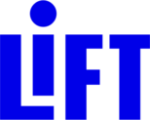“If you have come here to help me, you are wasting your time. But if you have come because your liberation is bound up with mine, then let us work together.”
-Lilla Watson
I first saw this quote last summer while teaching ESL classes to recently immigrated high school students. It was plastered on the clipboard of one of the directors of the program. At the time, though, I don’t think I fully comprehended what Lilla was saying. I thought I loved, or at least should love, helping people. I’d always enjoyed community service work, whether it be tutoring classmates, community clean-ups or working with kids. However, I also absolutely abhor wasting time – I can’t deal with traffic (looking at you DC roads), waiting in long lines (looking at you DC ‘fast’ casual) or being put on hold (looking at you customer service center probably not located in DC). What was Lilla trying to say?
I couldn’t help asking myself, “What’s wrong with helping people? Had I been wasting my time all these years?”
After spending that summer teaching with the Refugee Youth Summer Enrichment Program, I started to get a better picture of what she might have meant. While I was teaching my students English, they were teaching me other lessons: new words in their language, the best Chinese restaurants in Boston or simply how to live one’s life. I realized that only in environments with that sort of reciprocity can true progress really be made.
Coming out of that summer, I also knew I wanted to learn more about and get more involved with work that has a positive social impact. Over the last year, I have encountered Lilla Watson’s quote numerous times. To me, it epitomizes the “empowerment” movement. It seems that everyone – from charities, to community service organizations, to social entrepreneurs, to professors – all want to empower someone. And that’s great. It’s an admirable goal.
That being said, I haven’t found a professional organization that is so committed to actually living and breathing this ideal of empowerment at every level as LIFT is. For one, it’s deeply embedded in LIFT’s discursive practices, perhaps most directly in our mission: “To empower families to break the cycle of poverty.” Even in self-reference, LIFT refers to itself as a nonprofit working with – not just for – low-income families. The families we work with aren’t clients or guests; we refer to them as ‘members.’ Members of LIFT’s movement – of the LIFT family. Parents aren’t just passive recipients of our services; they’re the “CEOs, social entrepreneurs and chief architects of their families’ future.”
Even more important, though, is that commitment to changing the way we discuss and think about social work translates into more meaningful practice with better outcomes for families. Sitting in on member meetings at our DC site, I was struck by how much our members were able to take control of their meetings. Other initiatives such as direct cash transfers and matched deposits further demonstrate LIFT’s anti-paternalistic attitude. LIFT is constantly trying to make even better on its promise to work with and not for its members through our Constituent Voice program, listening tour, and commitment to continuous learning. Everything LIFT does starts and ends with members, thus creating the equal, reciprocal relationship that I’ve come to admire so.
Having witnessed first-hand both the direct service work LIFT does, and all the back-end work that goes into making those interactions possible, I feel like I truly understand what Lilla Watson was talking about. Life can be tough, as I’m sure every LIFTer can attest to. However, it’s important to remember that we’re all in this together, that my liberation is bound up in yours and that we can only get to the places we need to go if we work together. In this regard, LIFT isn’t wasting anyone’s time.
This blog post was written by Theo Lebryk, a student at Harvard and a summer 2017 intern at LIFT.
